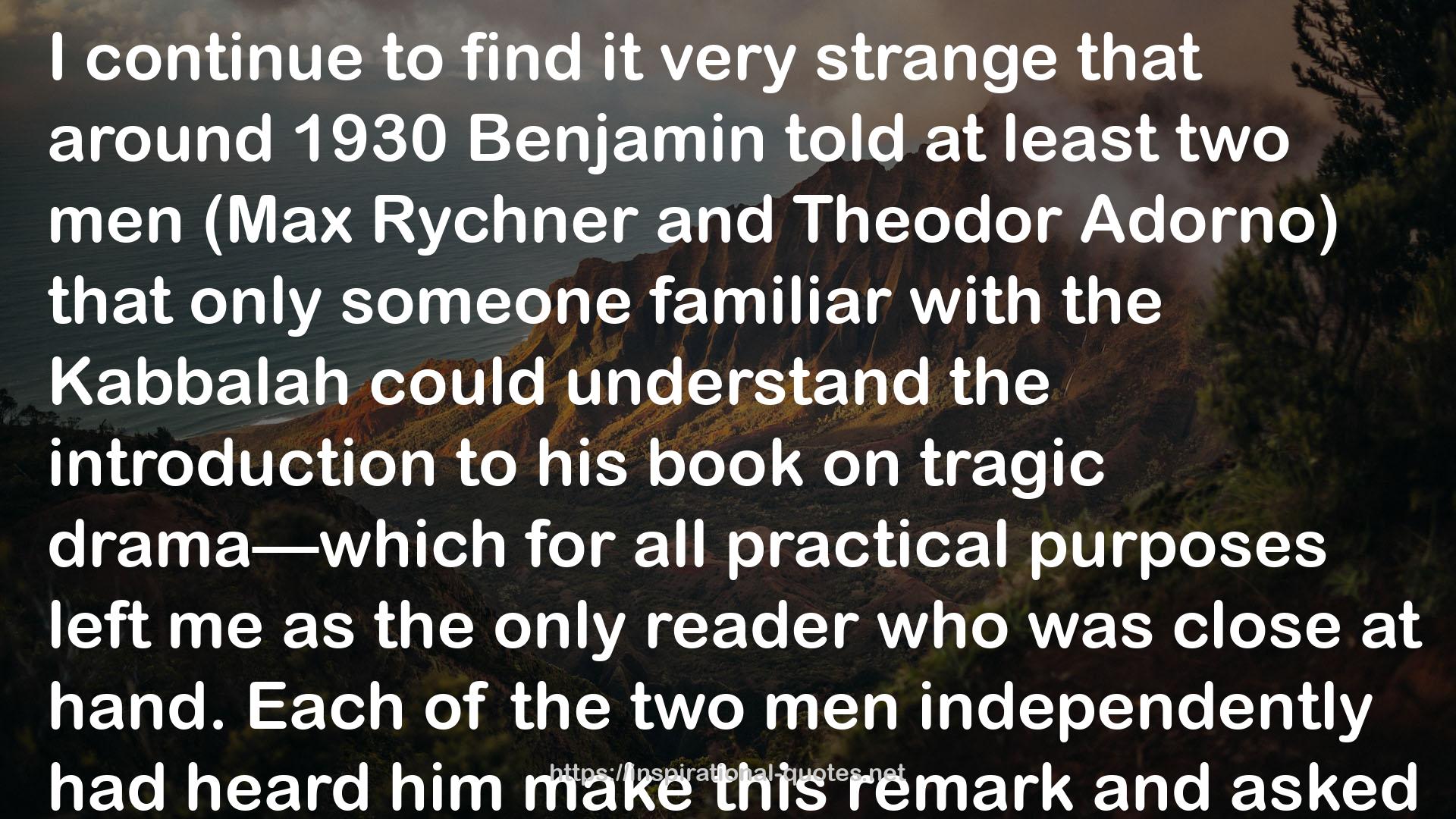" I continue to find it very strange that around 1930 Benjamin told at least two men (Max Rychner and Theodor Adorno) that only someone familiar with the Kabbalah could understand the introduction to his book on tragic drama—which for all practical purposes left me as the only reader who was close at hand. Each of the two men independently had heard him make this remark and asked me twenty years later whether this was correct and, if so, to what extent. But to me, who would have been, so to speak, the most likely recipient of such a message, he never directly expressed himself in this vein either in writing or in person, unless he did so implicitly in my dedication copy of his book: “To Gerhard Scholem, donated to the ultima Thule of his kabbalistic library”—as though that work somehow belonged in a kabbalistic library. Did he perhaps believe that this contiguity with ideas of the kabbalistic theory of language, even though greatly modified, should be obvious to me and required no explanation—which is true to a certain extent—or was he indulging in a game of hide-and-seek with me? Did he succumb to the temptation to indulge in some showing off, or did he wish to shroud the reproach of incomprehensibility that this introduction must have suggested to him, like few other pages in his writings, by referring to something even more incomprehensible (which is how the Kabbalah must have seemed to these men)? I do not know. I am reminded of one of my own statements, also from the thirties, that students of mine used to quote. Apparently I told them that in order to understand the Kabbalah, nowadays one had to read Franz Kafka’s writings first, particularly The Trial. "
― Gershom Scholem , Walter Benjamin: The Story of a Friendship
